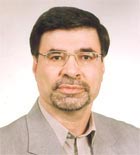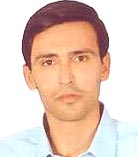Contents: 2024 | 2023 | 2022 | 2021 | 2020 | 2019 | 2018 | 2017 | 2016 | 2015 | 2014 | 2013 | 2012 | 2011 | 2010 | 2009 | 2008 | 2007 | 2006 | 2005 | 2004 | 2003 | 2002 | 2001
2005, 38
Voltage stability assessment by dynamic PV curve and time domain simulations with developed STATCOM model
language: English
received 01.08.2005, published 13.12.2005
Download article (PDF, 140 kb, ZIP), use browser command "Save Target As..."
To read this document you need Adobe Acrobat © Reader software, which is simple to use and available at no cost. Use version 4.0 or higher. You can download software from Adobe site (http://www.adobe.com/).
ABSTRACT
In this paper voltage stability is evaluated by both dynamic PV curve and time domain simulations with a developed and detailed model of STATCOM. Also effect of load with different power factors in voltage stability assessment is studied. The results presented in this paper show that STATCOM can greatly improve the voltage stability and maximum loading capacity of power systems, especially in lower power factors. It is also shown that the margin of stability can be easily and effectively evaluated by PV curves because they cover a wide range of system operating conditions. Also it is illustrated that reactive power has more effects on voltage stability rather than real power.
12 pages, 15 figures
Сitation: A. Kazemi, A. R. Entezary. Voltage stability assessment by dynamic PV curve and time domain simulations with developed STATCOM model. Electronic Journal “Technical Acoustics”, http://www.ejta.org, 2005, 38.
REFERENCES
[1] M. A. Perez, C. R Fuerte-Esquivel. Application of FACTS Devices to improve steady-state voltage stability. IEEE Proceeding, 2000.
[2] H. Chen, Y Wang, R. Zhou. Analysis of Voltage stability Enhancement via UPFC. IEEE Proceeding, 2000.
[3] C. W. Taylor. Power System Voltage stability. New York, McGraw-Hill, 1994.
[4] N. G. Hingurani. FACTS, flexible AC transmission system. IEE 5-th International Conference on AC and DC Power Transmission. September 1991, pp. 1–7.
[5] Y. Mansour, W. Xu, F. Alvarado, C. Rimizin. SVC placement using critical modes of voltage instability. IEEE Trans on Power System, vol. 9, No2, May 1994, pp. 757–763.
[6] F. D. Galiana et al. Assessment and control of the impact of FACTS devices on power system performance. IEEE Trans on power system, vol. 11, No4, November 1996,
pp. 158–165.
[7] D. Soto, R. Pena. Nonlinear control Strategies for Cascaded Multilevel STATCOMs. IEEE Transactions on Power Systems, vol. 19, No4, Nov. 2004, pp. 1919–1926.
[8] Z. Feng, V. Ajjampu, D. J. Maratukulam. A Practical Mimmum Load Shedding Strategy to Mitigate Voltage Collapse. IEEE Transactions on Power Systems, vol. 13, No4, Nov. 1998, pp. 1285–129.
[9] Kha, H. Suzuki, M. Egawa, T. Wataabe. Calculation of Critical Loading Condition with Nose Curve Using Homotopy Contincmhon Method. IEEE Transactions on Power Systems, vol. 6, No2, May 1999, pp. 584–593.
[10] C. A. Camzares. F. L. Alvarado. Point of Collapse and Continuation Methods for Large AC/DC System. IEEE TransactIons on Power Systems. vol. 8, No1, Feb. 1993, pp. 1–8.
[11] C A. Camzares. T. Faur. Analysis of SVC and TCSC Controllers in Voltage Collapse. IEEE Transactions on Power Systems, vol. 14, No1, Feb. 1999, pp. 158–165.
[12] M. Moghavvemi, M. O. Faruqe. A Line Outage Study for Prediction of Static Voltage Collapse. IEEE Power Engineering Review, vol. 18, Issue 7, Aug. 1998, pp. 52–54.
[13] D. Javcic. Phase Locked Loop System for Facts. IEEE Transactions on Power Systems, vol. 18, No3, Nov. 2003, pp. 1116–1123.
[14] C. Osavaka. Small Signal Dynamic Modeling of HVDC System. IEEE Transactions on Power System, vol. 18, issue 1, pp. 220–225, Jan. 2003.
 |
Ahad Kazemi was born in Tehran, Iran, in 1952. He received his M.Sc. degree in electrical engineering from Oklahoma State University, U.S.A in 1979. He is currently an associate professor in electrical engineering department of Iran University of science and Technology, Tehran, Iran. His research interests are reactive power control, power system dynamics, stability and control and FACTS devices. e-mail: kazemi(at)iust.ac.ir |
|
 |
Ali Reza Entezary was born in Iran, in 1981. He received his M.Sc. degree in electrical engineering from the Iran University of science and Technology, Tehran, Iran in 2005. His research interests are power system dynamics, stability, reactive power control and FACTS devices. e-mail: entezaryzarch(at)yahoo.com |
|
